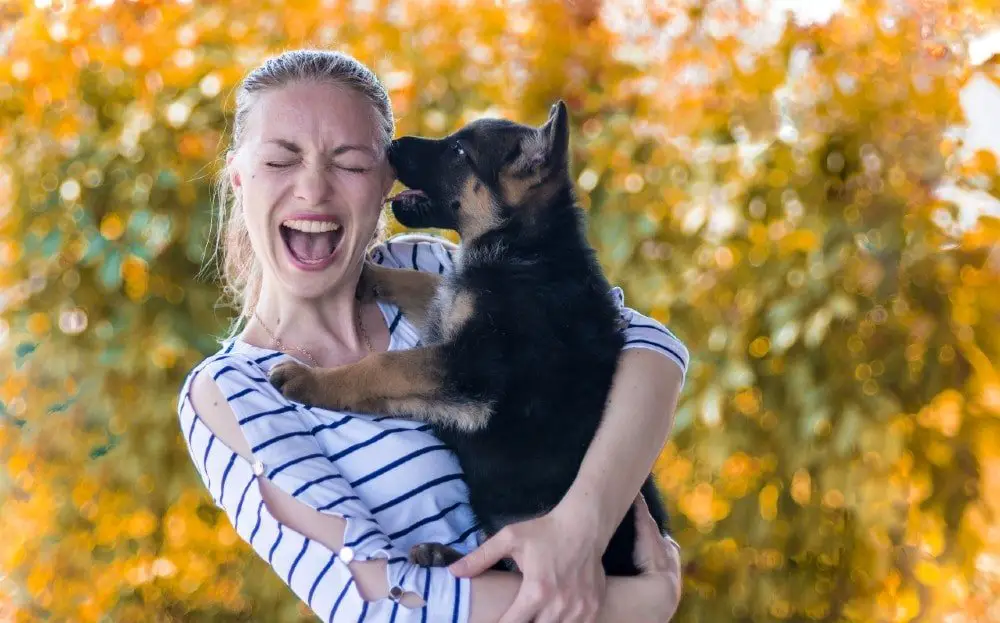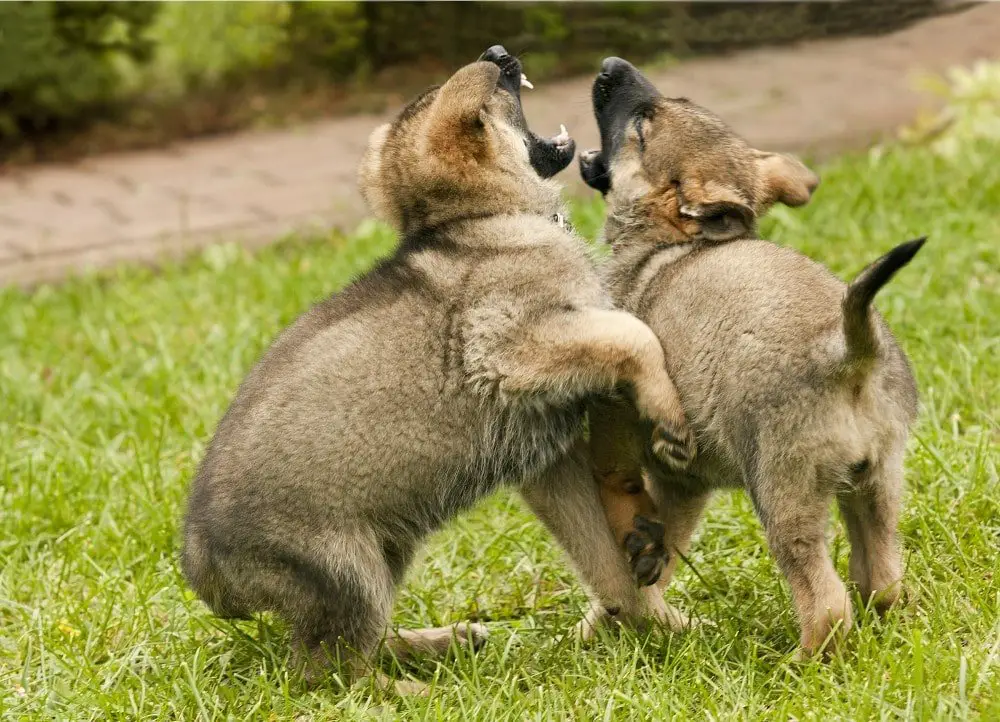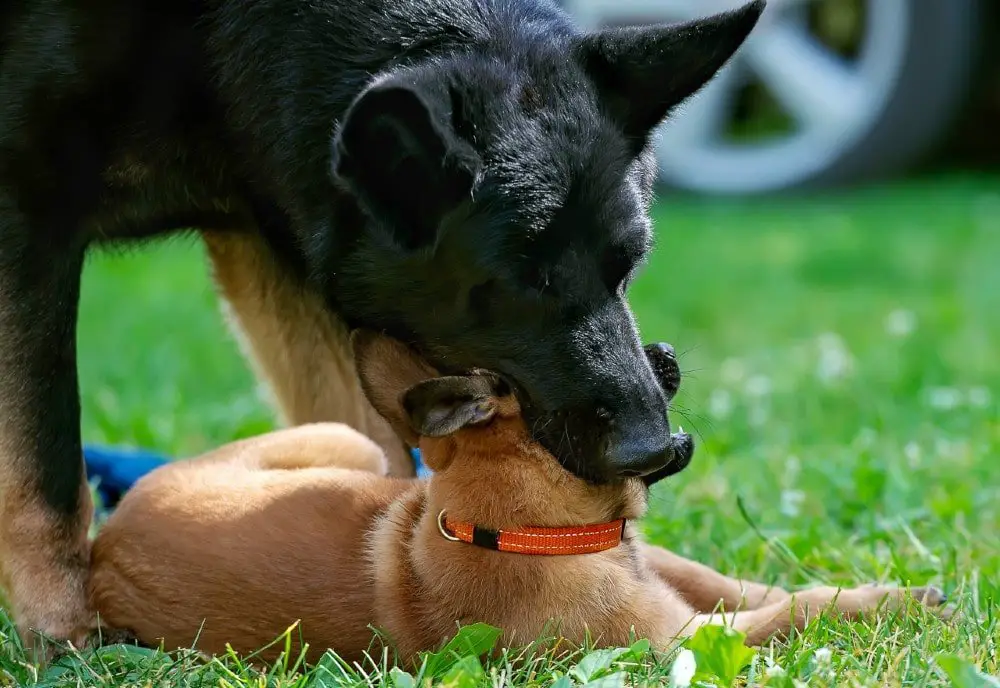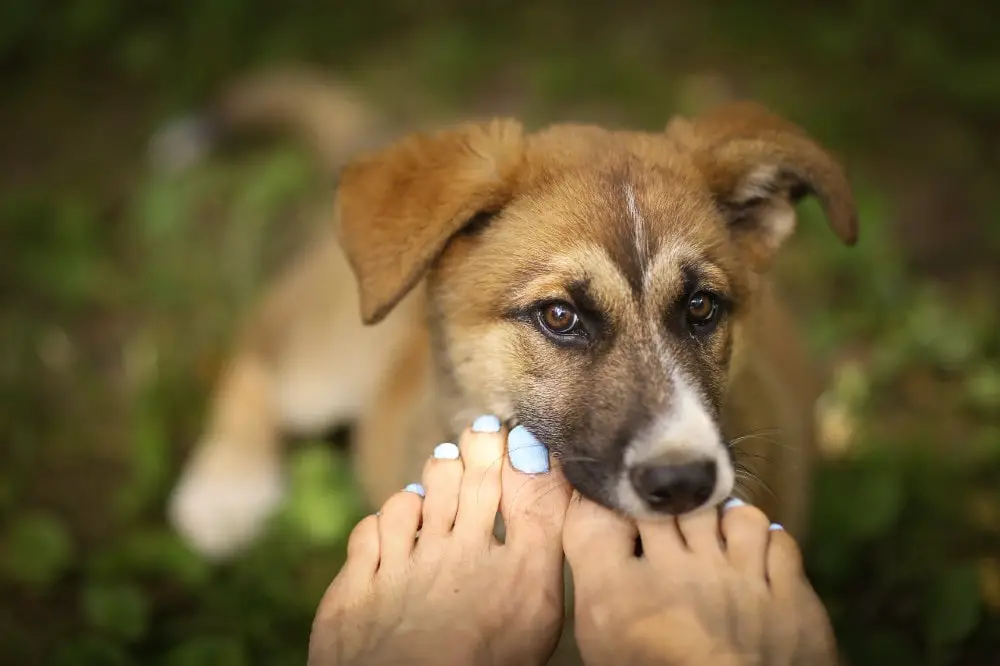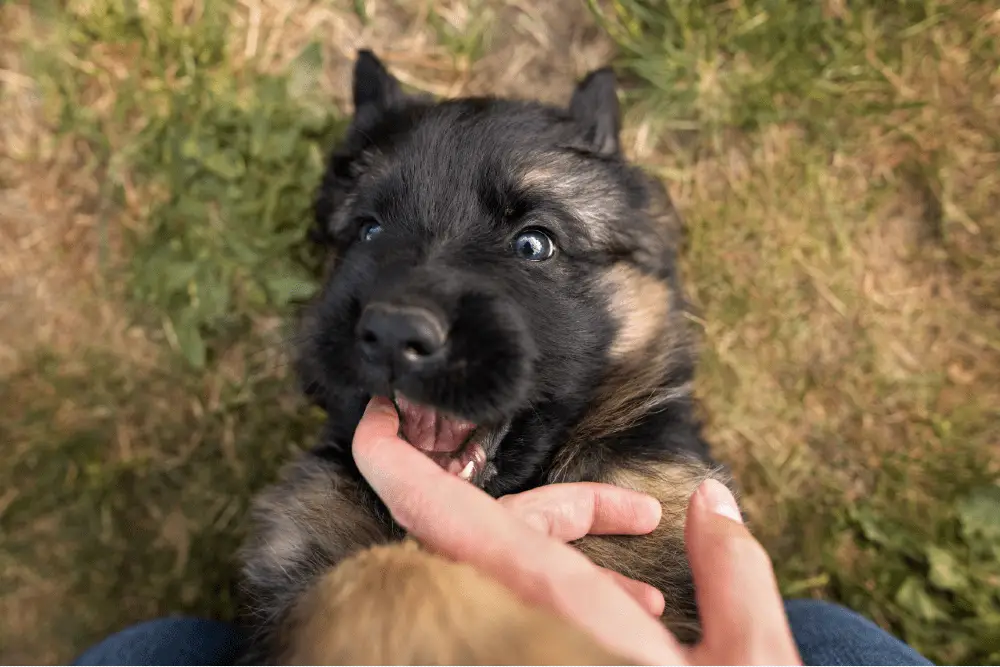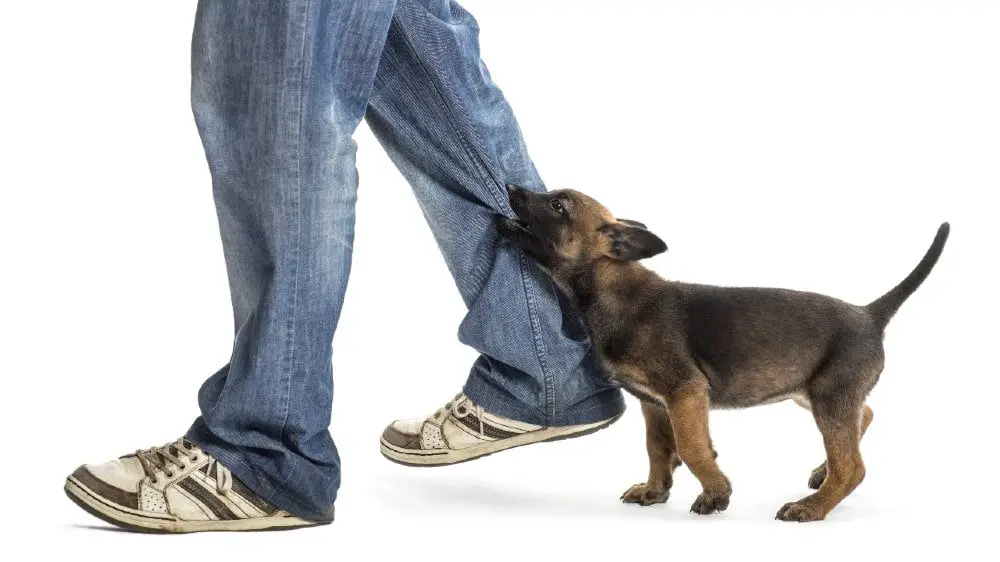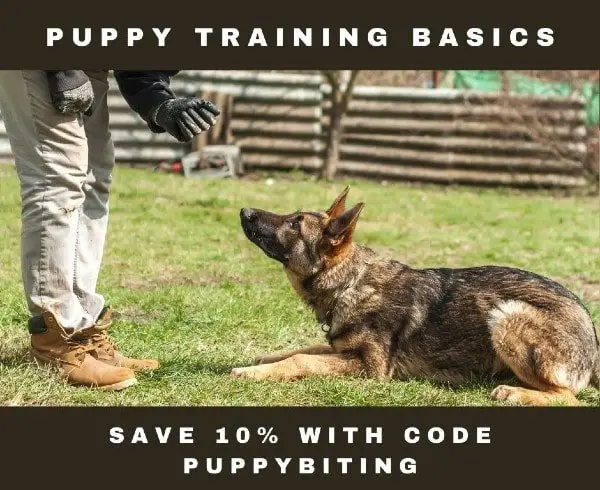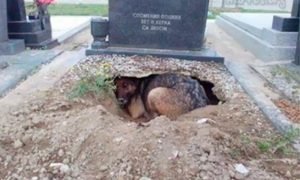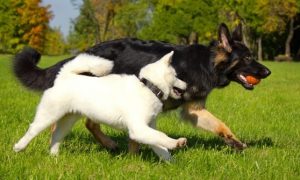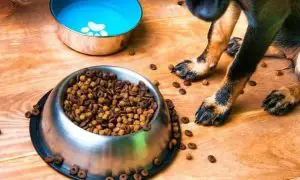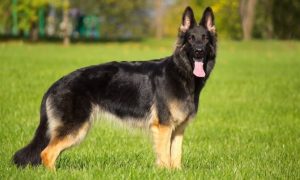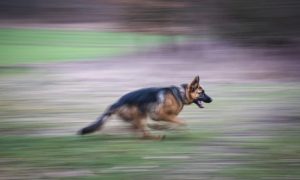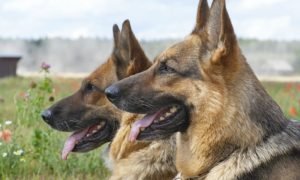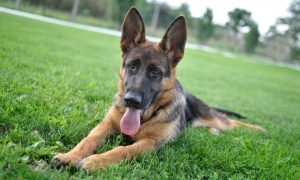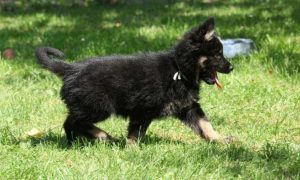Congratulations, you have a new puppy! Puppy breath is a good thing, puppy biting not so much.
Puppies are curious and joyful bundles of energy that lead with their mouths.
Very quickly, you are going to discover you have brought home a four-legged piranha with razor-sharp teeth. These pointy little teeth are piercing, and they hurt.
Let’s talk about puppy biting and how to stop puppy biting.
Why Do Puppies Bite and Nip?
First things first, let’s talk about the purpose of puppy teeth.
The reason why puppies have sharp teeth is to teach them bite inhibition. When puppies play, they mouth each other and bite each other.
When puppy A bites puppy B too hard, Puppy B will instinctively react in one of two ways.
Puppy B will cry out in pain or bite back with enough pressure to cause puppy A to cry out. Both reactions by puppy B are letting puppy A know they got too rough, bit too hard, and it hurt.
When a puppy nips at an adult dog, it is common to see the adult put the puppy in their place by snapping at them or placing their mouth over the puppy’s muzzle.
This behavior is how puppies and dogs teach and communicate with each other.
A puppy needs to learn bite inhibition, so they understand when it’s appropriate to bite and how much pressure to apply as an adult.
Puppy teeth are sharp and brittle. Adult teeth are dull and solid and can be very powerful, depending on the breed.
An adult dog who did not learn bite inhibition as a puppy can be dangerous to you, other people, or other pets or animals.
If puppies are left with their littermates or mother until six months of age, these puppies have taught each other basic bite inhibition.
When littermates are separated starting at eight weeks of age, it now becomes the job of new dog parents to teach our puppy not to bite.
Next, let’s discuss some misconceptions about play biting. It has nothing to do with teething.
Play biting usually happens during “play” and comes in surges. When your pup is teething, their gums will be swollen, they may be a little sluggish, and they want to chew versus bite.
Another misconception is that your puppy is trying to dominate you through biting. Puppies are orally stimulated, and they lead with their mouths.
Their little chompers will come in contact with anything and everything they can get a hold of, including you. Chewing and biting are what they do.
Will Puppy Biting Go Away on Its Own?
Many owners ignore puppy biting and nipping, hoping this puppy phase will go away on its own.
Sometimes, this is the case; however, bad habits can become ingrained, and once your dog grows up, these habits can lead to other significant problems.
Puppies, especially larger breeds, need to be taught fundamental rules, including never biting people, even in a playful way.
A playful bite from a large and powerful breed like a German Shepherd could result in injury, and even though it wouldn’t be the dog’s fault, this could have dire consequences.
How to Stop Puppy Biting
To stop puppy biting, some people recommend you bite back or yelp out in pain to mimic the reaction of a littermate.
This method might work a few times, but it generally doesn’t work long term.
Puppies know you aren’t a littermate, realize you aren’t a dog, and they will respond by coming at you again, thinking you want to play.
3 Ways to Stop Puppy Biting
1. Redirect
Set you and your pup up for success by having suitable items available to redirect their attention from inappropriate things, like flesh, clothing, shoes, and furniture, to approved items such as toys or treats.
If your puppy is biting you, tell them no biting or no mouth and redirect their focus to a toy. Treats also work to redirect a biting puppy but let’s talk about this.
If your pup is biting you and you give your dog a treat, you are teaching your puppy that biting is rewarded with food. This behavior is not what you want.
Instead, hold a treat in your hand, get your pup’s attention and make them comply with a basic obedience command such as sit.
When your pup sits, give the food reward and then get them focused on a toy. You distract your pup with food, make your puppy comply with obedience, and redirect them with a toy.
You are stopping unwanted behavior, and teaching desired behavior through compliance and reward while working on simple obedience all rolled into one.
2. Ignore and Be Still
Inciting more excitement is the number one mistake puppy owners make when their puppy bites or nips. Moving body parts quickly, pushing your pup away from you, or yelling makes your puppy think you want to play.
If your pup bites at your hands or clothes, stay still and calmly say “no biting” or “no mouth” in a low voice.
If you are walking or moving and your puppy begins to bite, stop all movement. The simple act of walking can put some pups into prey drive.
Some breeds and pups have more prey drive than others. The simple premise behind prey drive is something is moving or running away, and your dog’s instinct is to chase it and capture it.
So simply walking may trigger some pups to want to play and bite. If you stop all movement, that should start to de-escalate your pup’s drive.
Now some pups are relentless, and the more you redirect them, the more they nip at you. If this is happening, stop all movement, stop all play, and put your puppy in a time-out.
You want to place your puppy in a safe and secure area, preferably where they can see you. This is where crate training becomes useful.
Reinforce no biting or no mouth, and place your puppy into their crate or a designated area for a few minutes.
This allows them to calm down. A time-out also reinforces that unwanted behavior has consequences.
The unwanted behavior is biting or nipping, and the consequence is all play has stopped, and they have momentarily have been removed from their pack, which is you.
3. Exercise
A tired dog is a good dog is a quote that stands the test of time because it’s true.
Exercise your puppy and provide them plenty of mental stimulation. Excessive biting or chewing can stem from an overstimulated brain and body with nothing to do.
Puppy Biting Conclusion
Don’t let your pup be mouthy or get your attention through nipping or biting. If you are ignoring your pup because you are distracted, and they start biting to engage you, don’t allow it.
Tell your dog no biting or no mouth and put them in a time out. You need to control the situation and set the boundaries of what is allowed and what isn’t.
When your puppy is going through the biting stage, you want to have plenty of treats and toys available.
Make sure your pup’s toys are appropriate for their size and age. Balls, toys, and chews that are too small are potential choking hazards.
An 8-week-old puppy with small teeth will find a plush toy to be more enticing than a hard rope toy or a large rubber Kong. As your pup grows, their toys may need to get bigger and more durable.
Always supervise a puppy around children, be consistent, and remember that puppy biting is a phase. You will get through it.
🐾🐾🐾🐾🐾
Is Your Puppy Biting, Jumping, Pulling, and Not Listening?
These are the most common issues puppy owners have.
The GOOD news is that everyone can raise a well-mannered and obedient dog. You just need a little guidance.
For less than the cost of a six-week group obedience class, you can train your puppy from the comfort of your home.
Puppy Training Basics has over 3 hours of video content that teaches YOU how to train your pup and become a more confident owner.
Save 10% with code PUPPYBITING and start training today!
Learn More Here

